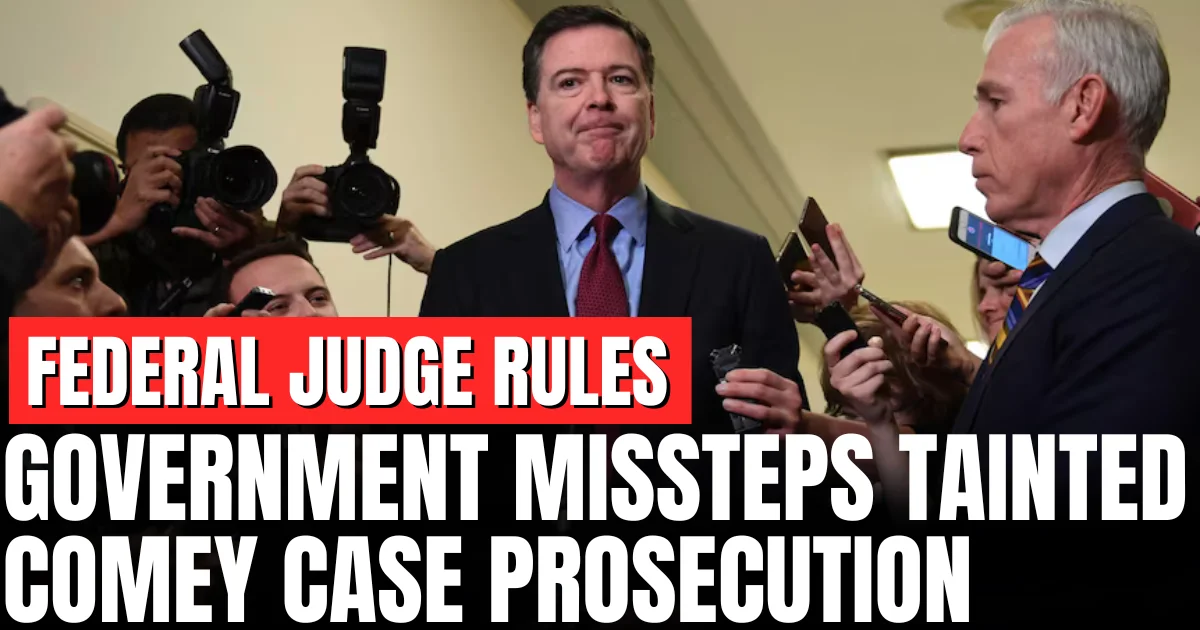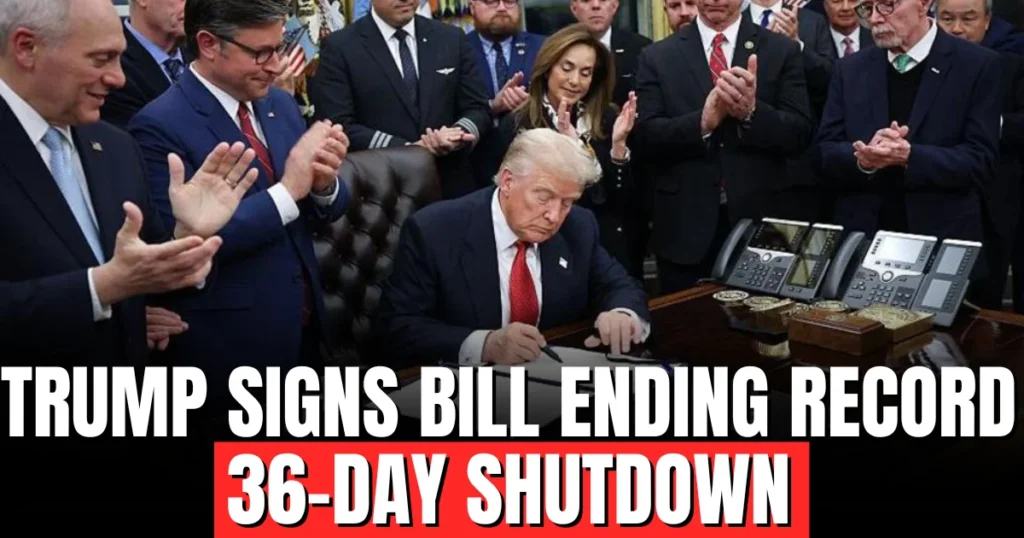Federal judge rules government missteps may have compromised James Comey case. Legal analysis of procedural errors and implications for prosecution.
Table of Contents
Federal Judge Rules Government ‘Missteps’ May Have Compromised Comey Prosecution
A federal judge issued a significant ruling stating that government attorneys made procedural errors that potentially tainted the legal case involving former FBI Director James Comey. The decision raises serious questions about prosecutorial conduct and case integrity.
The court’s determination could have far-reaching implications for ongoing legal proceedings and government accountability. Legal experts view the ruling as a rebuke to federal prosecutors’ handling of high-profile political cases.
Background of the Comey Legal Case
James Comey served as FBI Director from 2013 until his controversial termination in 2017. His tenure included oversight of politically sensitive investigations that generated intense scrutiny from multiple directions.
The legal case involves allegations related to Comey’s handling of classified information and communications following his FBI departure. Prosecutors alleged violations of federal records laws and confidentiality requirements.
Case timeline highlights:
- Initial investigation launched following Comey’s termination
- Federal prosecutors reviewed documents and communications
- Charges filed alleging improper handling of sensitive materials
- Comey’s legal team challenged government’s evidence gathering
- Procedural motions revealed potential prosecutorial problems
- Judge ordered extensive review of government conduct
The case attracted significant attention due to Comey’s prominent role in controversial investigations and his contentious relationship with former President Trump.
Judge’s Specific Findings on Government Errors
The federal judge identified multiple procedural violations and questionable tactics employed by government attorneys during case development and prosecution.
Key missteps identified:
Evidence Handling Irregularities
The court found that prosecutors failed to properly document chain of custody for certain evidence materials. These gaps create questions about whether evidence was tampered with or mishandled.
Discovery Violations
Government attorneys allegedly withheld exculpatory information from defense counsel in violation of constitutional requirements. Prosecutors must share evidence that might help defendants prove innocence.
Witness Interview Problems
The judge noted concerns about how government investigators conducted witness interviews, including potential leading questions and inadequate documentation of original statements.
Timeline Manipulation
Court findings suggest prosecutors presented events in misleading sequences, creating false impressions about Comey’s actions and intentions during critical periods.
Selective Prosecution Questions
The ruling raised concerns about whether Comey faced prosecution for conduct that other officials committed without legal consequences, suggesting unequal application of laws.
Legal Implications of the Ruling
The judge’s determination creates significant complications for prosecutors attempting to continue the case. Tainted evidence and procedural violations often provide grounds for dismissal or appeal.
Potential case outcomes:
Dismissal with Prejudice
If violations are deemed severe enough, the judge might dismiss charges permanently, preventing government from re-filing. This represents the most favorable outcome for Comey.
Dismissal without Prejudice
The court could dismiss current charges while allowing prosecutors to correct errors and potentially re-file. This gives government another opportunity but requires starting over.
Evidence Suppression
Specific evidence obtained through improper procedures might be excluded from trial while other aspects of the case proceed. This weakens prosecution’s position substantially.
Sanctions Against Prosecutors
The judge could impose penalties on government attorneys including professional discipline referrals, case removal, or financial consequences for misconduct.
Appellate Reversal
If prosecution continues despite problems, appellate courts might later overturn any conviction based on fundamental procedural violations identified.
Defense Team’s Response
Comey’s attorneys characterized the ruling as vindication of their long-standing complaints about government prosecution tactics. They argued from the beginning that the case represented politically motivated overreach.
Defense arguments validated:
Legal counsel maintained that prosecutors targeted Comey selectively for conduct routinely engaged in by other former officials without legal consequences. The judge’s findings support this unequal treatment claim.
Defense teams emphasized constitutional rights violations throughout the process. The court’s acknowledgment of discovery violations and evidence problems confirms these concerns.
Attorneys argued that government witnesses provided unreliable testimony influenced by prosecutorial pressure and political considerations. Judicial findings about interview problems lend credibility to these assertions.
Defense next steps:
Comey’s legal team will likely file motions seeking complete case dismissal based on the judge’s findings. They’ll argue that procedural violations are so fundamental that prosecution cannot continue.
If dismissal motions fail, defense attorneys will move to suppress all evidence obtained through improper procedures. This could eliminate most of government’s case materials.
Civil litigation against prosecutors and investigators might follow if criminal charges are dismissed. Malicious prosecution claims could seek damages for legal costs and reputation harm.
Government Prosecutors’ Position
Federal attorneys downplayed the significance of identified missteps while maintaining that core case allegations remain valid despite procedural problems.
Prosecution arguments:
Government lawyers characterized errors as inadvertent administrative oversights rather than intentional misconduct. They argue that mistakes don’t invalidate the underlying legal theory.
Prosecutors contend that even excluding problematic evidence leaves sufficient materials to proceed with trial. They maintain that multiple independent sources support charges.
Federal attorneys emphasized the seriousness of alleged violations, arguing that procedural imperfections shouldn’t prevent accountability for substantive wrongdoing.
Government options:
Prosecutors might attempt remedying identified problems through supplemental discovery and corrected evidence presentations. This approach seeks to cure violations without abandoning the case.
Department of Justice leadership could decide cutting losses and dismissing charges rather than continuing problematic prosecution. Political and resource considerations influence such decisions.
If the case proceeds, government will likely appeal unfavorable evidentiary rulings. Appellate courts might reverse some of the judge’s determinations.
Political Context and Reactions
The ruling generated predictable partisan responses reflecting broader political divisions over Comey’s controversial tenure and high-profile investigations.
Political perspectives:
Trump Supporters’ Views
Those aligned with the former president view the troubled prosecution as further evidence of “deep state” corruption. They argue that Comey escaped accountability through political connections despite clear wrongdoing.
Comey Defenders’ Reactions
Supporters characterize the case as politically motivated revenge prosecution lacking legitimate legal foundation. The judge’s findings validate claims about improper government conduct.
Institutional Concern
Some commentators worry about declining professionalism in federal prosecutions of political figures. They see both the original charges and the procedural violations as problematic for different reasons.
Reform Advocates
Criminal justice reform supporters use the case to highlight systemic problems with prosecutorial power and insufficient oversight of government attorneys.
Broader Implications for Federal Prosecutions
Beyond Comey specifically, this ruling affects how federal prosecutors handle politically sensitive cases and face accountability for procedural violations.
System-wide impacts:
Heightened Judicial Scrutiny
Courts may examine government conduct more carefully in high-profile political prosecutions. Judges might impose stricter compliance requirements when cases involve prominent figures.
Discovery Protocol Emphasis
Prosecutors face increased pressure to meticulously document evidence handling and comprehensively share exculpatory materials. Violations carry greater consequences following prominent rebukes.
Selective Prosecution Challenges
Defendants in political cases will more aggressively argue unequal treatment defenses. Courts may show greater receptiveness to these arguments following precedents like this ruling.
Internal DOJ Reviews
The Department of Justice might implement enhanced internal oversight for politically sensitive prosecutions. Quality control mechanisms could prevent similar problems in future cases.
Constitutional Considerations
The case raises fundamental questions about due process, equal protection, and limits on prosecutorial discretion.
Legal scholars note that constitutional protections apply equally to all defendants regardless of political prominence or public opinion. Comey deserves the same rights as any criminal defendant.
Key constitutional issues:
Due process requires fair procedures including proper evidence handling and complete discovery. Violations of these requirements undermine trial integrity fundamentally.
Equal protection principles prohibit selective prosecution based on political considerations. If similarly situated individuals face no charges for identical conduct, prosecution violates constitutional guarantees.
Separation of powers concerns emerge when executive branch prosecutors target political enemies or allies based on partisan considerations rather than neutral law enforcement.
What Happens Next in Court
Legal proceedings will continue through multiple stages regardless of the judge’s ruling on government missteps.
Expected procedural timeline:
Dismissal Motions
Defense will formally request case dismissal based on prosecutorial misconduct. Extensive briefing and possibly oral arguments will address whether violations warrant complete case termination.
Evidentiary Hearings
The court may conduct hearings examining specific evidence items and government conduct. These proceedings determine which materials remain admissible despite procedural problems.
Government Response Period
Prosecutors receive opportunities to remedy identified deficiencies or argue that violations don’t require dismissal. They might present additional evidence obtained through proper procedures.
Judicial Determination
The judge will ultimately decide whether the case proceeds, gets dismissed, or continues with limited evidence. This decision could take weeks or months.
Potential Appeals
Whichever side loses critical motions will likely appeal to higher courts. Appellate review adds months or years to final resolution.
FAQ SECTION
1. What missteps did the government make in the Comey case?
The federal judge identified multiple procedural violations including evidence handling irregularities with inadequate chain of custody documentation, discovery violations where prosecutors withheld exculpatory information from defense counsel, problems with witness interview procedures, misleading timeline presentations, and potential selective prosecution concerns. These errors collectively raise serious questions about case integrity and prosecutorial conduct throughout the investigation and charging decisions.
2. Could the Comey case be dismissed because of these errors?
Yes, the judge’s findings create grounds for potential dismissal. Defense attorneys will likely file motions arguing that procedural violations are so fundamental that prosecution cannot continue fairly. The court could dismiss charges with prejudice (permanently) or without prejudice (allowing re-filing after corrections). Alternatively, the judge might exclude specific evidence while allowing other aspects to proceed, significantly weakening the government’s case.
3. What happens to prosecutors who make these mistakes?
Consequences vary depending on whether errors are deemed inadvertent mistakes or intentional misconduct. Possible outcomes include professional discipline referrals to state bar associations, removal from the case, internal Department of Justice disciplinary proceedings, and in severe cases, potential legal liability for malicious prosecution. The judge could also impose sanctions including financial penalties or adverse evidentiary rulings affecting the government’s case.
4. Why is this case politically controversial?
James Comey’s tenure as FBI Director involved oversight of politically sensitive investigations including those affecting the 2016 presidential election. His firing by President Trump and subsequent public disputes created intense partisan divisions. Supporters view the prosecution as politically motivated revenge while critics believe Comey should face accountability for alleged violations. The case symbolizes broader debates about equal justice and political weaponization of legal systems.
5. What are the broader implications for federal prosecutions?
This ruling may lead to heightened judicial scrutiny of government conduct in politically sensitive cases, increased emphasis on meticulous discovery compliance, greater receptiveness to selective prosecution defenses, and potentially enhanced internal Department of Justice oversight mechanisms. The decision signals that courts will hold prosecutors accountable for procedural violations even in high-profile cases, potentially affecting how similar cases are handled going forward.
CONCLUSION
The federal judge’s determination that government missteps potentially tainted the Comey prosecution represents a significant judicial rebuke to federal prosecutors. The ruling underscores that no case, regardless of political prominence or public interest, justifies abandoning fundamental procedural protections and constitutional requirements.
As legal proceedings continue, this case will test whether courts enforce accountability for prosecutorial misconduct as rigorously as they pursue alleged criminal violations. The outcome carries implications extending far beyond one former FBI Director to fundamental questions about fair process and equal justice.
Whether the charges ultimately proceed or face dismissal, the documented government errors highlight ongoing challenges in maintaining prosecutorial integrity when political pressures and public attention intensify. The American legal system’s credibility depends on consistent application of procedural safeguards regardless of defendants’ identities or political controversies.
Do government prosecutors face sufficient accountability for procedural violations? Should politically sensitive cases receive different scrutiny than routine prosecutions? Share your thoughts on legal system integrity in the comments!

